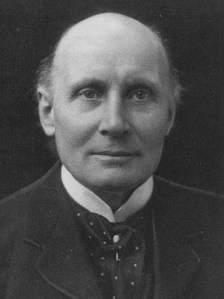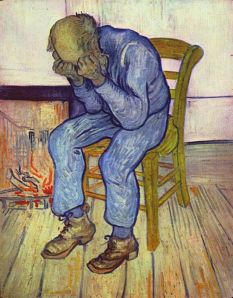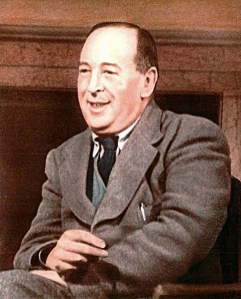In a world driven to conflict by political correctness, wokeism, critical race theory, and cancel culture we need to find peace in our own important ideas.
Once upon a time, the term “spirituality” unequivocally meant something religious. In the West, a spiritual person was a good Christian or a pious Jew; someone who attended church or synagogue regularly and who made an effort to live up to what was preached from the pulpit. They were uplifted by the minister’s or rabbi’s praise, chastened by his criticisms. They also read one or another version of the bible and found useful guidance and comforting sustenance there. They said their prayers and believed that God was not only listening, but might also answer in some way. The Lord worked (in the world) in mysterious ways. Across society at large, there was a consensus of opinion as to what constituted behaviour and values that acceptably matched the Judeo-Christian tradition. This mattered. The latter notion occasionally rears its ancient head to this very day.

In a world of punitive political correctness, aggressive wokeism, divisive critical race theory, and destructive cancel culture it has never been harder to be true to yourself.
The near-total collapse of Christianity in Western Europe, and its sharp decline in North America spilled vast numbers of people into a world where spirituality supposedly did not matter. Scientism, materialism, relativism, or rational positivism were the way to go and there was no reason to look back upon archaic notions of a “spiritual life.” Who needs the providence of God when we have big government and the social safety net? Who needs the moral and ethical guidance of a religious faith when we have the “scientific” psychologists and psychiatrists to tell us who is behaving badly (sociopaths, psychopaths) and who is behaving properly (the well-adjusted) and why each group is bad or good.
After many decades spent viewing the world in this way, it has become evident that something is seriously lacking. I believe that what has gone missing is all sense of spirituality of a practical useful kind. As so often happens where objective evidence is scanty, we have thrown the baby out with the bath-water. The mistake has arisen from a fundamental misunderstanding of what spirituality really is. The old idea of tying spirituality to God and religious faith masked the reality that spiritual matters actually have to do with our own inner selves. The Judeo-Christian tradition caught some aspect of this with the notion of the soul and its damnation or salvation, but dropped the ball when it went on to ascribe the source of values and the outline of appropriate behaviour to an external God. This way of looking at the human condition constitutes an externalization or projection of what should be seen as coming from inside one’s own self.
Psychologist Carl Jung lays this out clearly in his book, Answer to Job where he suggests that the dictates of the Bible look more like the unconscious contents of the persons who wrote it than the pronouncements of a spirit God. A dim but growing awareness of the true situation may, in fact, be responsible for the substantial demise of organized religion. Too many people experienced a discrepancy between church teachings and some of their own thinking or intuitions. That same vague understanding may also explain today’s widespread interest in the various schools of psychological thought.
So, if spirituality is not really tied to religion, yet it is something we all seem to need, where may it be found? A case can be made that the answer lies in a three-fold process. The first two are entirely psychological: a relatively straight-forward but honest attention to self-discovery and the much more difficult exercise of possibly humbling self-acceptance. The third item, self-realization, is actually an activity–a life-long wilful activity–the wielding, actualization, and fulfilment of one’s found and accepted self in the world. (Note that this self-triad is my elaboration of the Jungian idea of individuation, which is only obliquely addressed in current psychological practices.) Self-realization means literally living out, to the fullest extent possible, who we truly are and what we can achieve–again–in the world. The process is not about self-absorbed naval gazing or egotistical posturing or empty virtue signalling. The critical thing to remember is that what we should be doing with our lives is not something determined by others; it is something important to we ourselves.
Recognizing that we are already the unconscious bearers of a well-developed set of values and a particular world-view is to set ones feet on a gratifying journey to a genuinely spiritual life. The objective here is not to become trendy or politically-correct or “woke”. Conformity of any kind must be rejected (scary stuff, yes?) if one is to uncover and adopt ones own true morality and authentic way of seeing the world. These vital aspects of being human cannot be arbitrarily chosen by us as individuals (being trendy), nor can they be imposed from without by others (being indoctrinated); they must be discovered within ourselves in the unconscious portion of the psyche where they were developed when we were growing up. Following the path into one’s own Self and then living by and for that Self is the very essence of living a spiritual life. After all, we are talking about our own spirits.
Many posts in this blog deal with the various aspects of the process sketchily outlined in the previous paragraphs. You will find them in categories (bottom of the post) such as Jungian Psychology, Mind, Spirituality, and just plain Psychology. Other categories attempt to integrate the core ideas with Creativity, Writing, and Philosophy. If you are feeling confused or threatened by powerful social ideas such as punitive political correctness, aggressive wokeism, divisive critical race theory, and destructive cancel culture–or have been robbed of your peace of mind by actually buying into these contentious notions–you may find balm and solace in what I have written about the things that really matter: will, the self, and the stabilizing spiritual effect of finding and living by your own emotionally important ideas. Rise above being drearily politically correct or “woke” to someone else’s vision; awaken to who you truly are.








